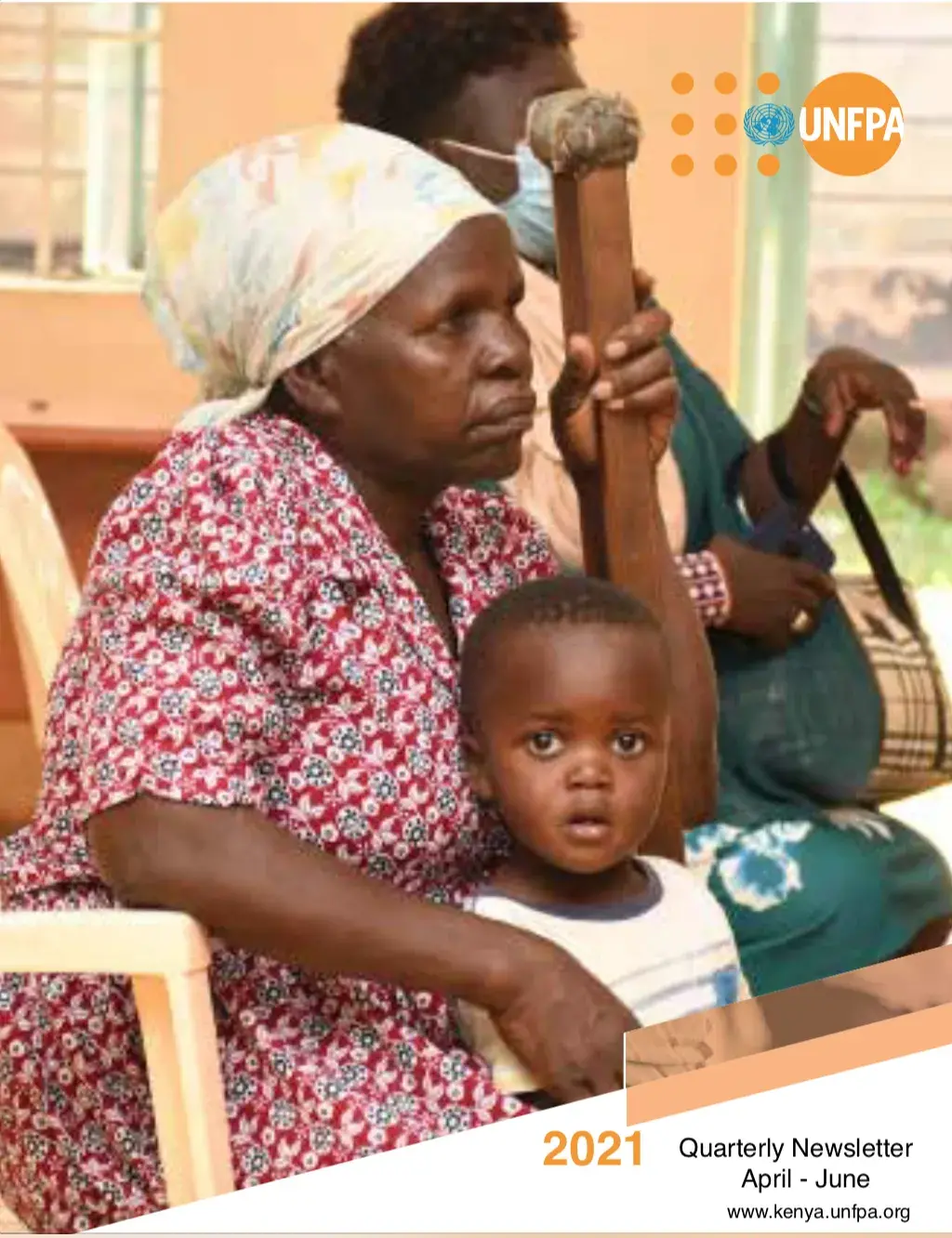Ensuring access to sexual and reproductive health services even while health systems grapple with the Covid-19 pandemic requires strong partnerships across sectors and organizations. Strengthening development and poverty eradication demands a focus on sexual and reproductive health and women empowerment, while reaching those who are most in need.
UNFPA continues to work with the government of Kenya and local partners to deliver sustainable programmes that impact a range of populations including women and girls, adolescents, youth, and persons with disabilities. Our work has focused on safeguarding access to comprehensive sexual and reproductive health and rights services, information, and supplies while ensuring women and girls have the skills and tools required to manage their lives and realize their potential.
In the period since our last newsletter, UNFPA has released two critical reports that show much more needs to be done to achieve gender equality and in realizing the transformative goal of zero preventable maternal deaths. The State of the World Population Report 2021 revealed that many women are still not empowered in making decisions about their bodies. This lack of bodily autonomy has massive implications beyond the profound 2
harms to individual women and girls: potentially depressing economic productivity, undercutting skills, and resulting in extra costs to health care and judicial systems.
The 2021 State of World’s Midwifery Report also shows that an acute shortage of midwives is exacting a terrible global toll in the form of preventable maternal mortalities and morbidities. These include obstetric fistula, a condition which can be prevented through provision of comprehensive sexual and reproductive health services. The continued under-resourcing of the midwifery workforce is a symptom of health systems not prioritizing the sexual and reproductive health needs of women and girls, and not recognizing the role of midwives to meet these needs.
We are pleased to share with you this newsletter with stories that show the real-life impact of UNFPA programmes on the lives of women and young people in Kenya. UNFPA remains committed to supporting country-led development and to working with the Government of Kenya in realizing a demographic dividend that can propel the national economy forward as we strive to realize vision 2030.


